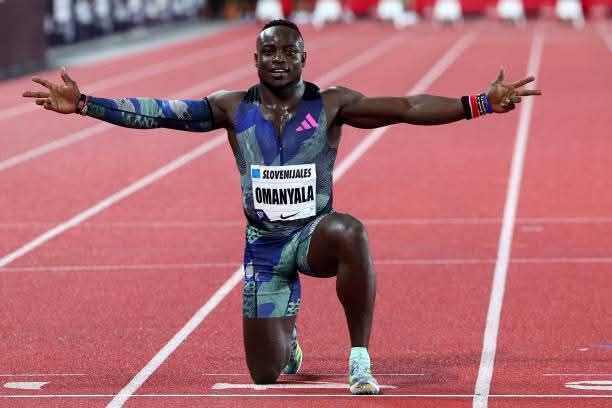Africa’s fastest man, Ferdinand Omanyala, has reshared a powerful clip reflecting on his past struggles, saying many African athletes come from poor backgrounds.
In the world of athletics, victory is often measured in milliseconds — but for many African athletes, the journey to the finish line is far longer, and far tougher.
Kenyan sprint sensation Ferdinand Omanyala recently reshared a powerful clip on his Instagram stories from a 2024 interview on the Ready Set Go podcast. Though recorded over a year ago, the message hits just as hard today.
“We come from poor backgrounds and families and are not here to compete with anybody. We just want to change the storyline.”
Those words aren’t just a personal reflection — they echo the untold struggles of countless African athletes rising from poverty, adversity, and obscurity to chase greatness on the world stage.
On the podcast hosted by Justin Gatlin and Rodney A. Green, Omanyala opened up about his humble beginnings. He recalled living on just one dollar a day, surviving on hope and raw talent before sprinting his way into the global spotlight.
“I’ve lived that life… from surviving on a dollar a day to now being able to book a flight tomorrow to anywhere I want. It’s a painful life, so I have to stay grounded.”
Green, himself a former sprinter from The Bahamas, noted the humility and resilience that often define African athletes. Despite extraordinary achievements, many remain deeply grounded — a product of where they come from and what they’ve overcome.
Omanyala’s story is no exception. It’s not just about speed; it’s about struggle and transformation. Before the accolades and endorsements, there was silence ,Sacrifice and Hunger. A fight to prove his worth in a system that rarely gives athletes from Africa the foundation they deserve.
While global athletics often celebrates medals and records, it rarely reflects on what it takes for an African athlete to even reach the starting line. The lack of infrastructure, limited financial support, and constant underdog pressure all contribute to a reality that remains hidden behind the spotlight.
By resharing this moment, Omanyala isn’t looking for sympathy. He’s making a statement: African athletes are not here to impress — they’re here to change lives. Their presence on the track is fueled not by privilege, but by purpose.
His words, a year later, still hold power. They serve as a reminder that behind every African sprinter’s stride is a story — one of pain, perseverance, and the pursuit of change.


